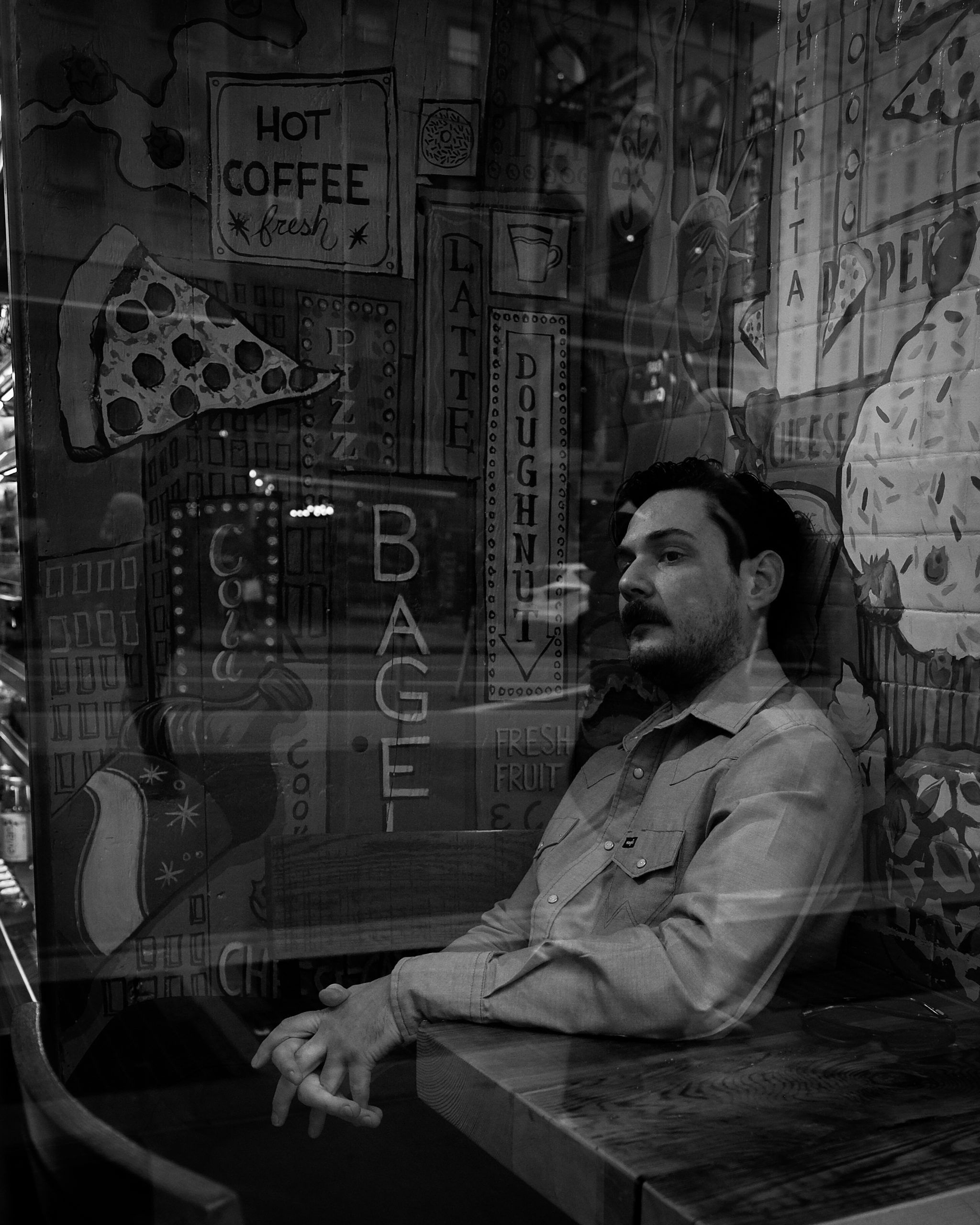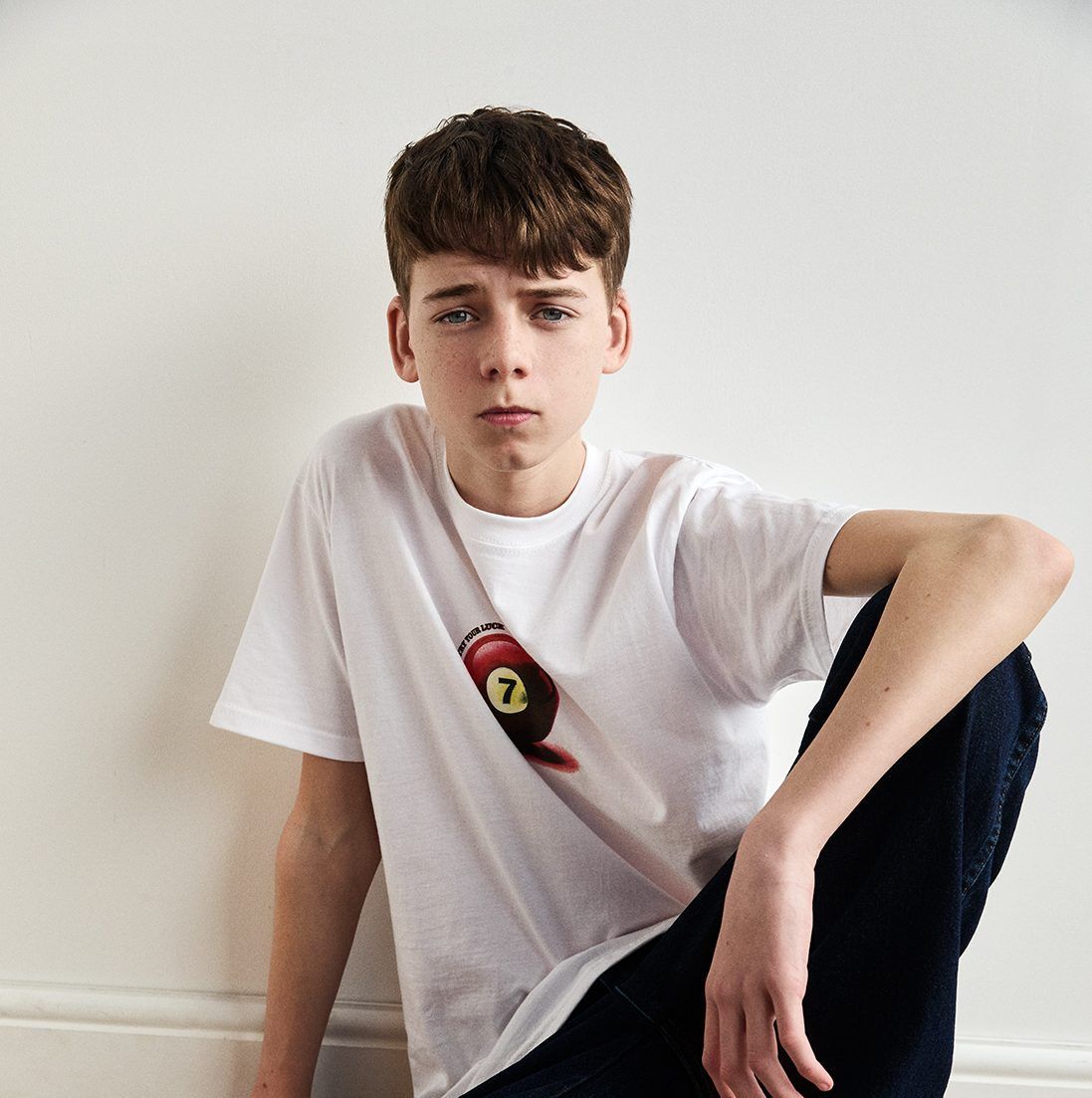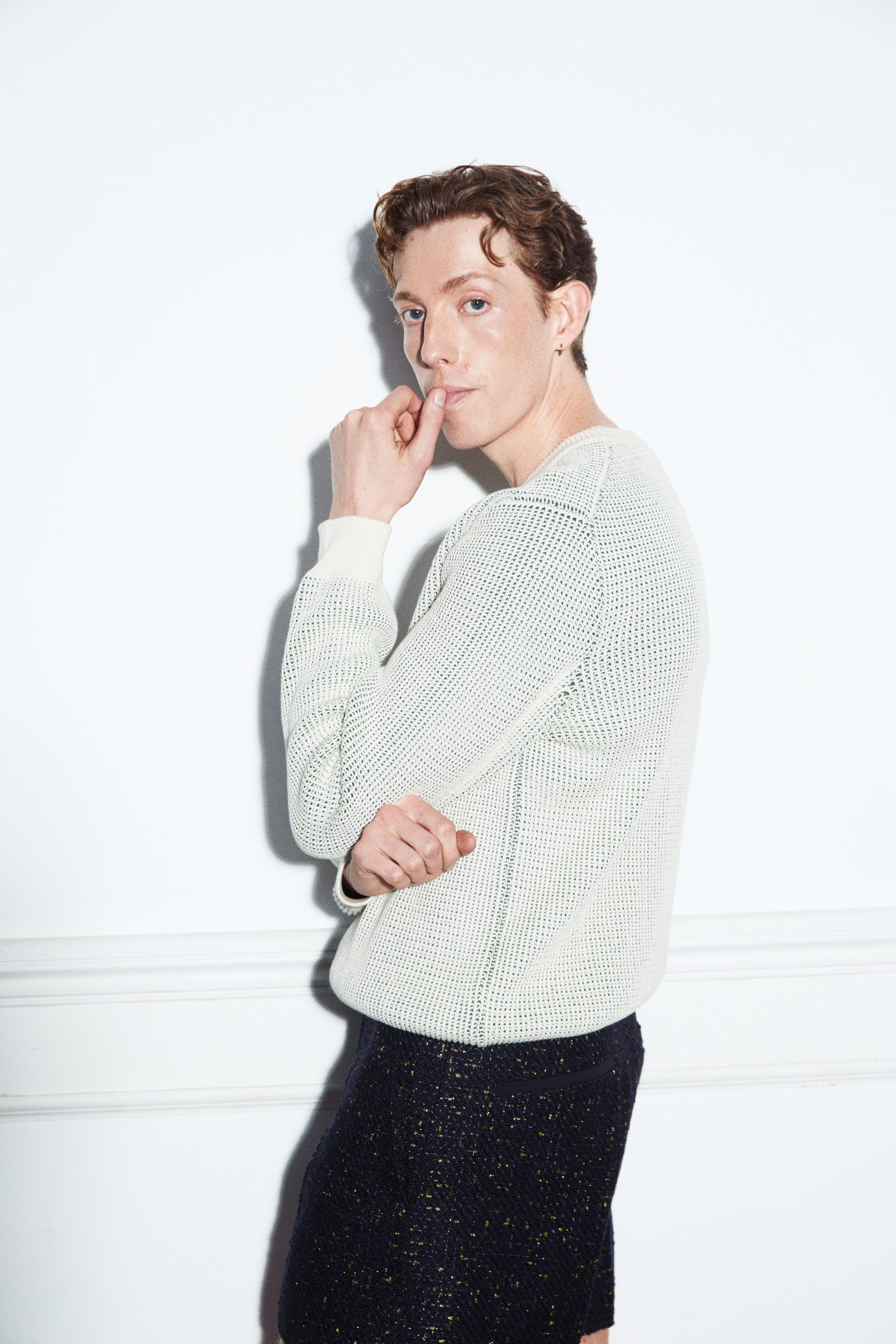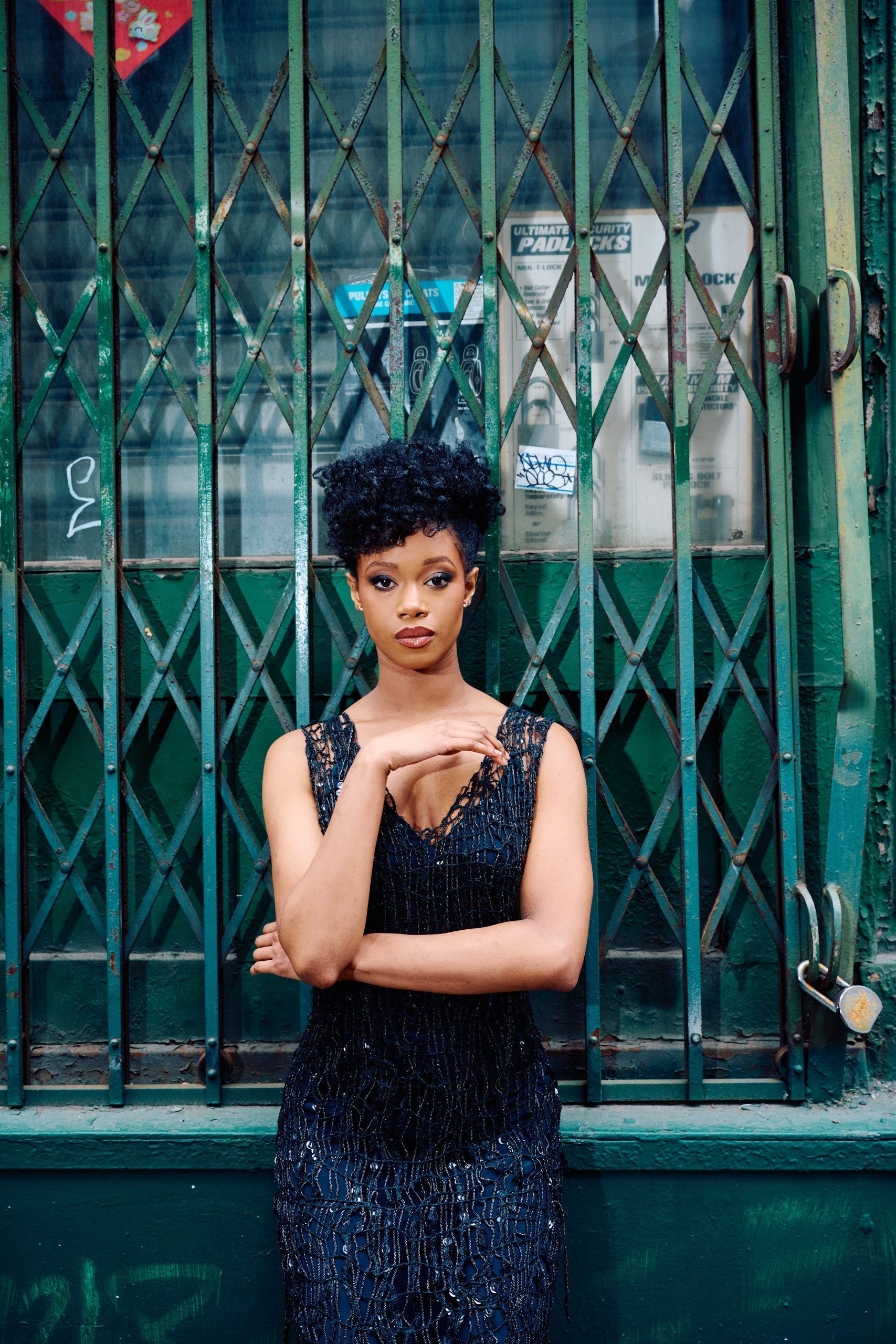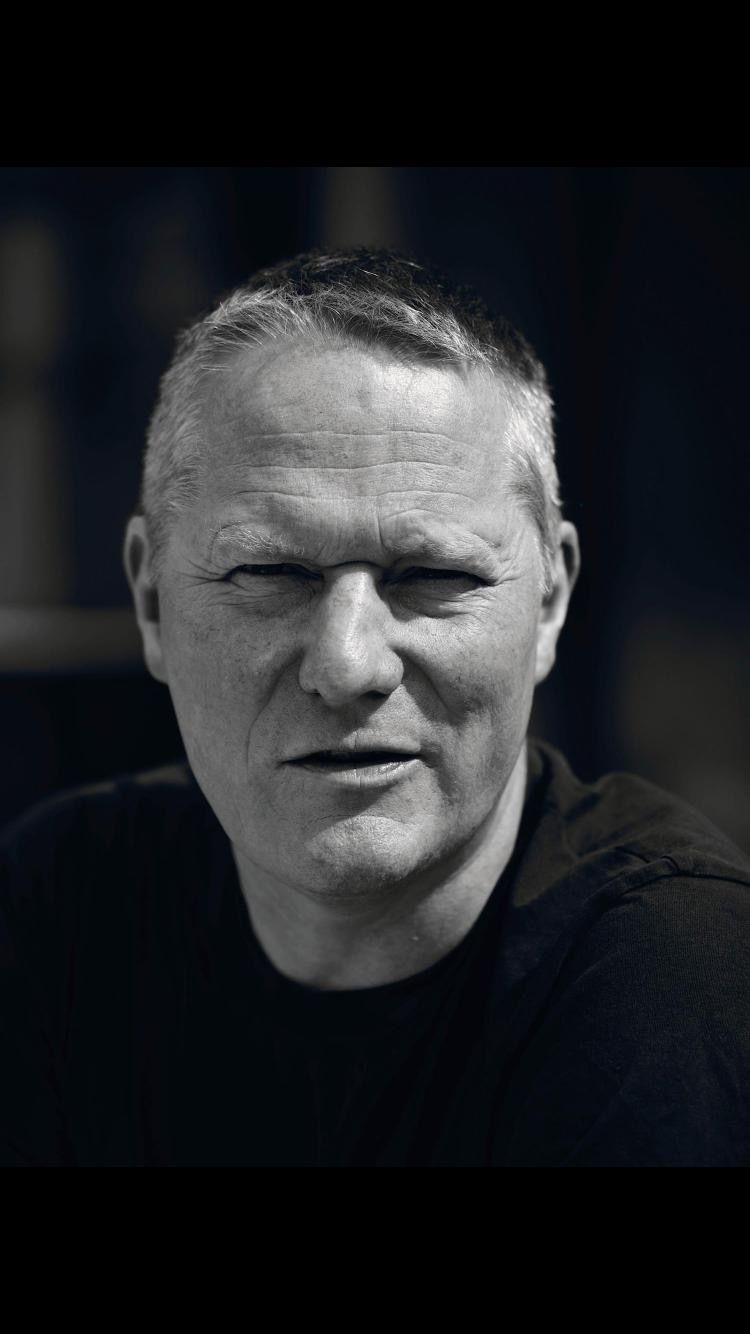For his role in the new play Stereophonic, which follows a 70’s rock band over the recording of their next album, Tom Pecinka plays a fictional rockstar eight times a week on Broadway. But with a recent flurry of awards nominations, sold-out performances, and a cast album release, Pecinka and his Stereophonic castmates now have schedules rivalling those of real chart-topping rockers. “It’s been utterly and completely surreal, and insane and a rush,” Pecinka says of the whirlwind press and acclaim around Stereophonic. “We haven’t even been open for a month.”
Stereophonic officially opened on Broadway in April, but Pecinka has been with the production since its off-Broadway run at New York’s Playwrights Horizons last year. Set entirely in a recording studio, with the musicians roaming between a control room and a glass-walled recording booth as they workshop tracks, the play required its cast to learn their characters’ instruments in order to perform songs onstage. Pecinka takes up the electric guitar to play vocalist-guitarist Peter, whose quick temper repeatedly places him at odds with his bandmates. The unnamed group’s efforts to complete their album stretch into a months-long endeavour told over four acts, prolonged by infighting, creative indecision, and personal turmoil.
The show recently became the most Tony-nominated play in the awards’ history, with thirteen nods across ten categories (including Best Play for writer David Adjmi). Pecinka’s electric performance as Peter—the most irascible of the bandmates, but also the most resolute in perfecting their music— netted him a nomination for Best Featured Actor in a Play. He faces some friendly competition in his category: two of his Stereophonic co-stars, Will Brill and Eli Gelb, also picked up noms.
“Because so many of us are nominated and there are so many events to go to, I feel like we’re spending more time with each other outside of the theater than we ever have,” Pecinka says. “I keep joking with Will and Eli that I’m gonna break their legs because they’re nominated in my category. But we love each other and we’re so proud of the show, and so happy to be nominated together and be able to get to go to all these things together.”
Stereophonic is now playing at the Golden Theatre. 1883 catches up with Pecinka to chat about the show’s success, his bond with his onstage bandmates, and more.
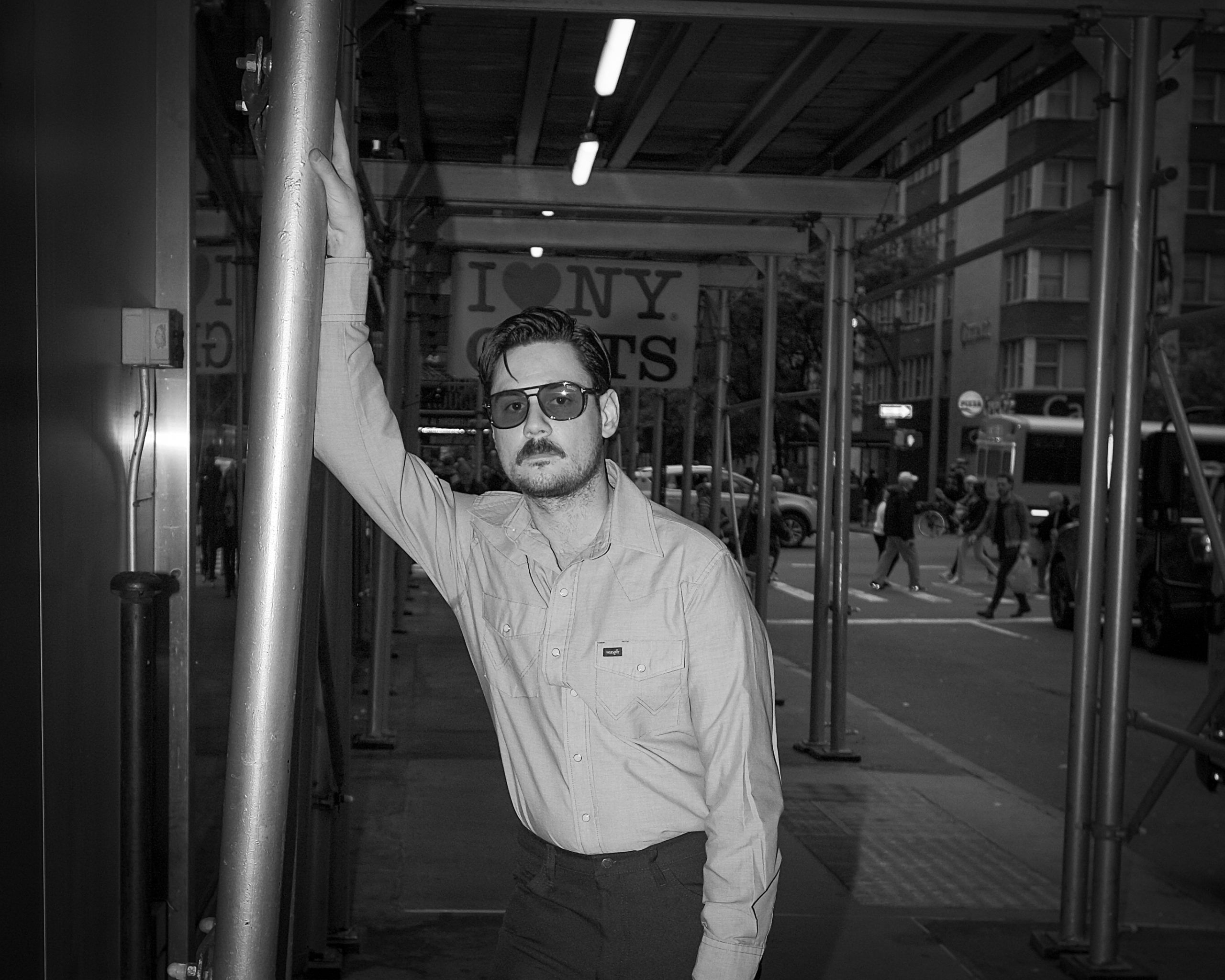
In the time since Stereophonic’s opening, the Tony nominations came out, you performed on The Tonight Show, and the official cast recording of songs from the show was released. What’s been on your mind lately?
It’s just been a go, go, go situation. You spend so many years hoping that you’ll be a part of something like this, and you’ll get nominated for a Tony and you’ll make your Broadway debut. It’s all happening at the same time. You have to take it day by day and keep your feet on the ground because it’s very easy to buy into all the stuff outside of the show. But then you also have to do the show every night; it’s a three-plus hour show where you’re playing live music. You have to consciously balance everything.
What was it like being in the studio for the cast recording? Did the process ever mirror what happens in the play?
We didn’t fight as much as we do in the play, thank God. We all get along pretty well, which I think is better than not. But yeah, it was super meta. We had done the whole off-Broadway run, and then luckily we were able to do most of the recording in between off-Broadway and Broadway. But it was amazing. Never did I think I’d be in a band. People, whenever I’ve done some interviews, they’re like, oh, you’re this fake band. I’m like, no, we’re a real band. We probably play together more than most bands.
So to be in the studio, and to be in the studio with Will Butler and Justin Craig, our musical director… you know, the words “musical genius” get thrown around a lot. I think Will’s pretty close if not a musical genius. To be in the studio for the first time with someone like that, who’s just down to experiment and figure it all out in the moment, it just felt really organic and really useful. But yeah, you’re in a studio where there’s no windows for hours and hours and hours, and you get a good idea of what the characters are going through in the play.
We see the fictional band trying to get their songs right, but was there a number or scene in the show that was the most difficult for you to perfect?
It’s funny, people come to see the play and they’re like, “I feel like it’s improvised, it’s so natural.” It’s the farthest thing from improvised. It is incredibly technical. Our writer, David [Adjmi], is such a stickler for getting the punctuation right and getting the overlaps right, and getting it perfect. He writes with pauses. There’ll be in the script, it’ll be like, “Pause.” And then it’ll be like, “Beat.” And then it’ll be like, “Long pause.” And it’ll be like, “Pause that makes the audience feel like this will go on forever.” So it’s like figuring out the differences between all of those things. It’s very technical.
There’s one scene at the end of Act One between myself and Sarah Pidgeon, who plays Diana. It’s really long, and we worked on that scene a lot. Our main goal was to really pull the audience between what side they were on. Are you on Peter’s side now? Oh, now you’re on Diana’s side, now you’re on Peter’s side. Getting the tone right, as well as all the technical stuff, was really important to everybody.
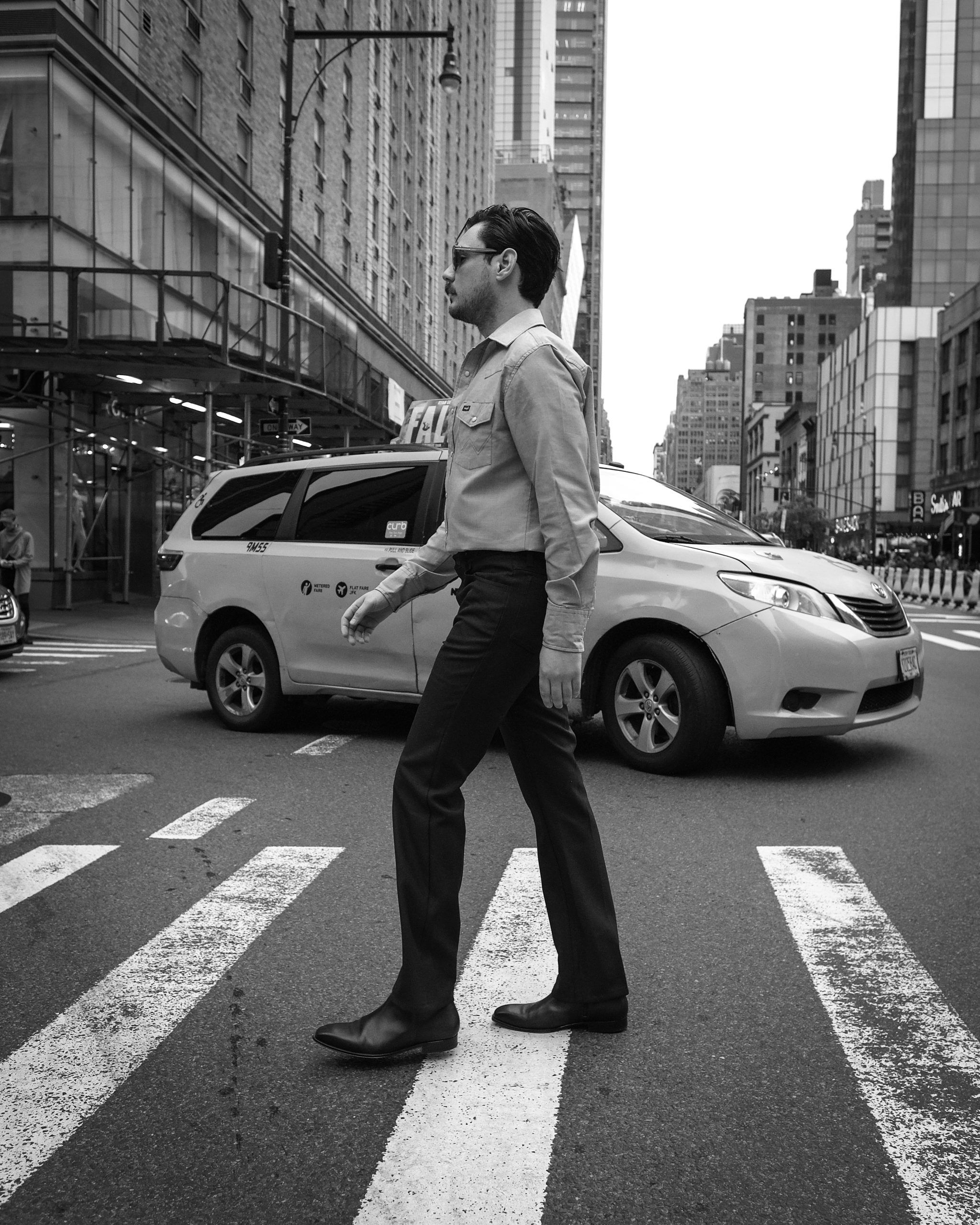
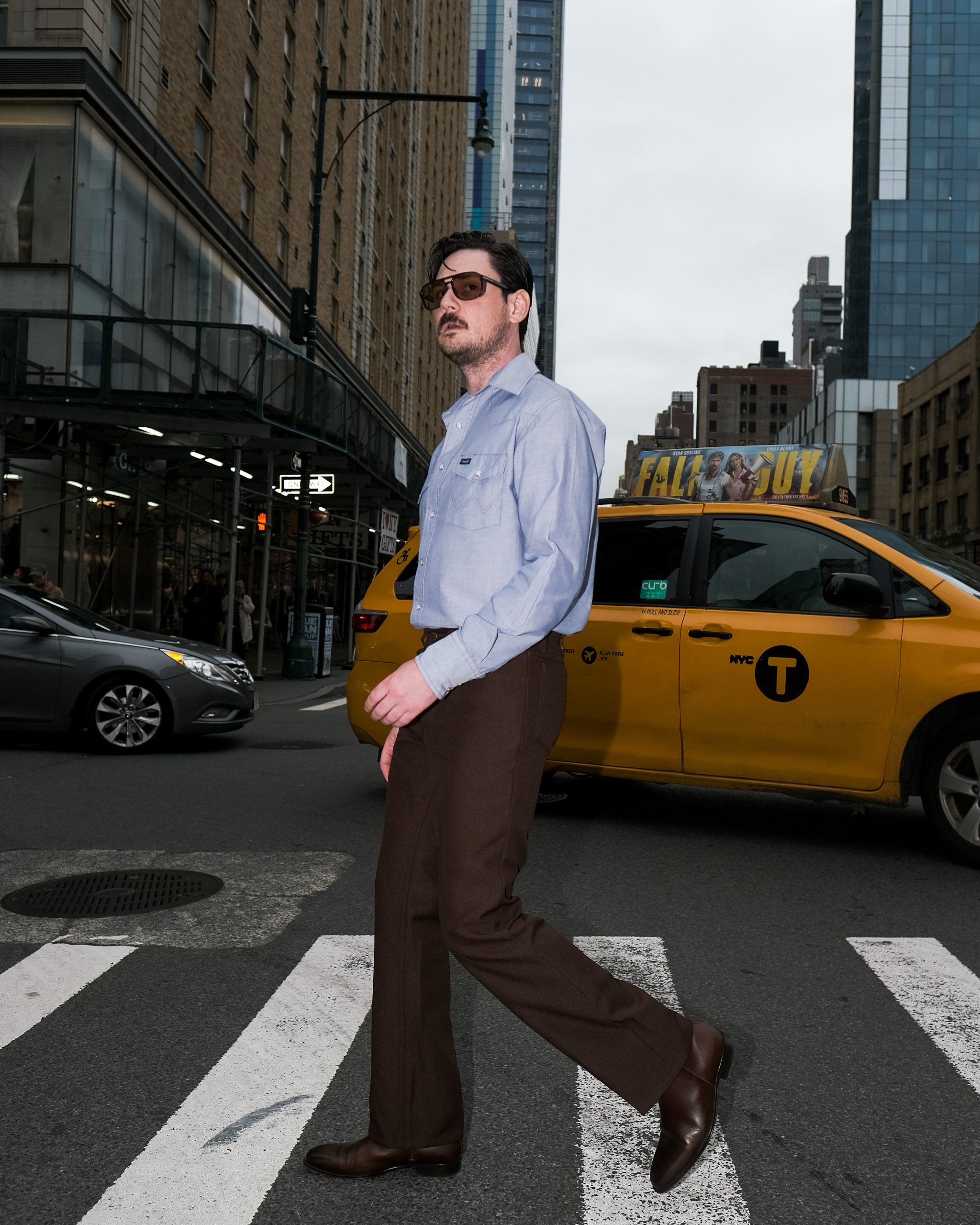
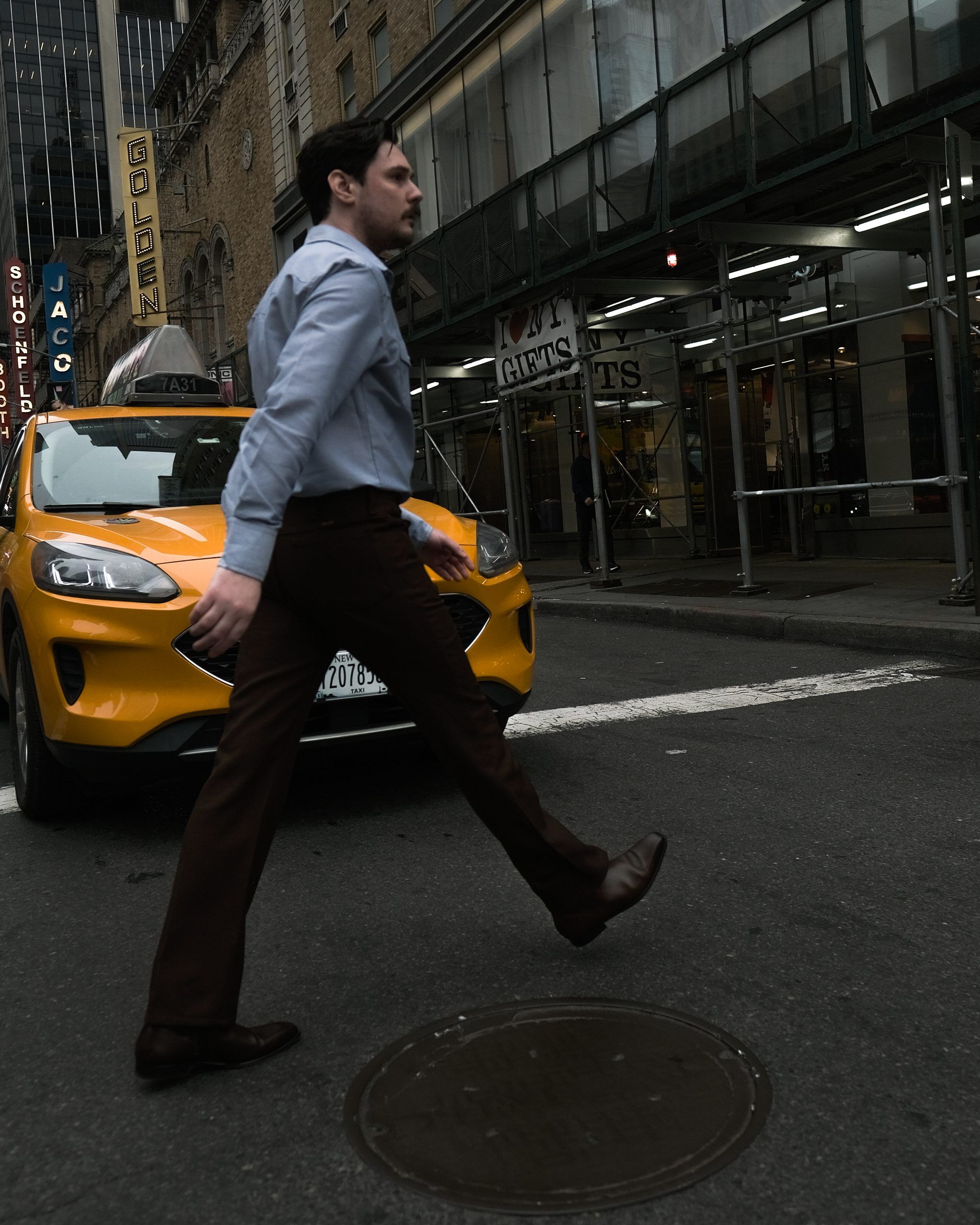
When the band enters the soundproof recording booth and the audience can’t always hear you, do you improvise your conversations? When I attended the show, you entered the booth doing a Frankenstein impression.
That’s so funny that you saw that, that’s something that I’ve come up with very recently. I’ll try to make Sarah laugh pretending to be a mythical creature. It’s just a fun thing for me every night. I’ve done a Yeti, I’ve done a Loch Ness monster. It’s just some stupid thing. You do a show so many times every night, you’re like, what can I do to make it fun for myself? David actually wrote a scene for that room. We decided not to learn it and not to do it. But we did all read it, and whenever we feel like we’ve run out of things to talk about, we sometimes dip into that. The scene was something about pizza and pasta and the Beach Boys. So every once in a while, I’ll just go “Pizza, pasta, Beach Boys,” and everyone gets on board.
Discussions of Stereophonic evoke a lot of references to different bands, and musicians. Were there any documentaries or memoirs of the behind-the-scenes process that you turned to for inspiration?
The Fleetwood Mag thing goes on and on and on, and that’s fine. Initially, I was like, “But this isn’t that.” Obviously, it’s very heavily influenced by the makeup of the band and that period of time, and the stories that go around about how fraught those relationships were for many, many years and continue to be to this day. I’ve always been a fan of 70’s rock, but I learned so much about different bands from that period more than I ever knew. I discovered the Altman Brothers band during this and fell in love with them. I was really trying to figure out what the voice of Peter is like, singing-wise. I really liked early Billy Joel, because that was in my house growing up. It already was like in my brain and probably influenced my own singing voice at some point, so it was just a quicker leap for me to make. I looked at Robert Plant just for physical vibes. Like, what is it like to be someone who goes out there as the leading frontman of a band and plays? I looked at Lindsay Buckingham a little bit but didn’t really delve too much into him. I watched a lot on YouTube, just Googling studio footage from Fleetwood Mac or from different bands. Of course, the big one for me, and I think for a lot of us, was the Get Back documentary. That was a huge one because that sort of goes on forever. It’s so amazing to watch the mundane pass you by through the lens of four of the most famous people who have ever lived.
Stereophonic reminded me of that a lot. The moment where you see Paul McCartney coming up with “Get Back,” seemingly on the fly.
Yeah, that’s an incredible moment. Playing Peter, there’s so much pain there and there’s so much controlling behaviour and so much anger. Watching that reminded me that these guys were having fun. Musicians have fun. Yeah, they fight, too, but they also have a lot of fun and joke around and pass the time like anyone does. I think that was really helpful to just remind myself that you can also have fun doing this.
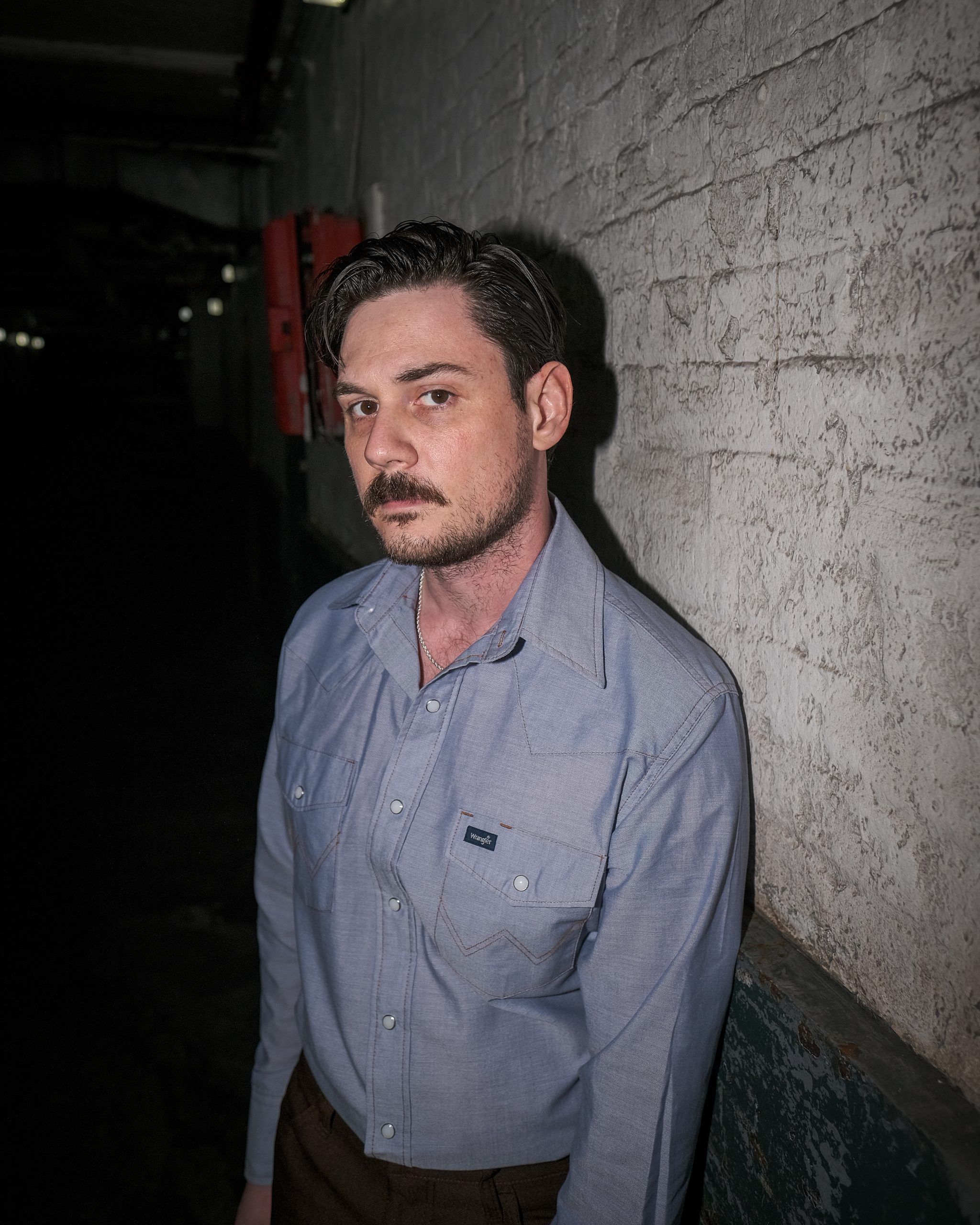
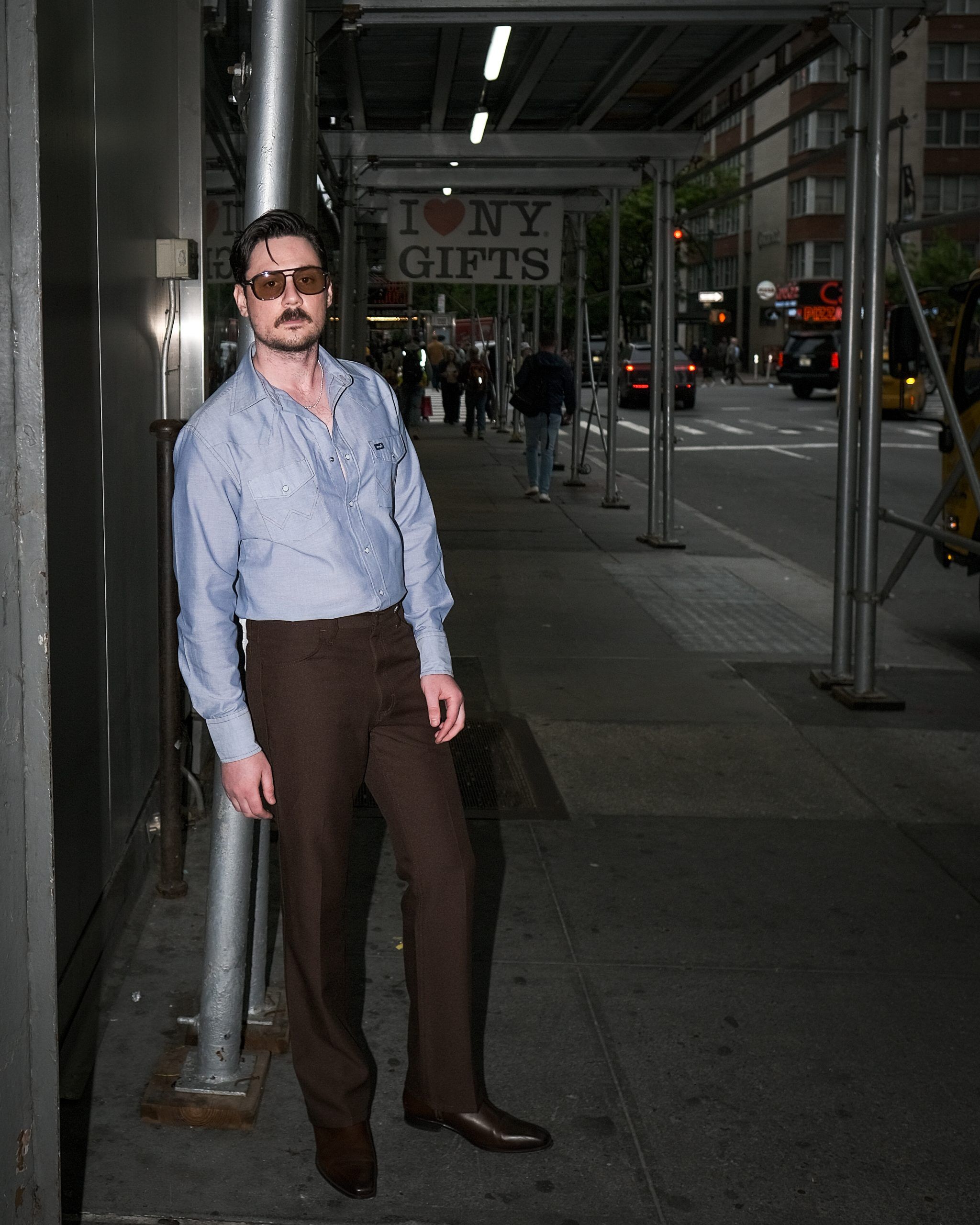
Peter’s bandmates call him out for being too critical, and he’s the source of a lot of conflict. Do you feel he’s misunderstood by the band? Has your understanding of him changed over the course of workshopping this show and the character?
I’ve always said this: I’m an actor who doesn’t care if the audience likes me or not because all my favourite actors are like that. Like Gary Oldman or Philip Seymour Hoffman. They play these people who, I watch their work and I don’t actually think they care at all about being liked. I think that’s kind of the bravest acting you can do, is reveal someone who is not the most palatable person to the world. Because we meet those people, or we are those people, sometimes in our lives.
It’s funny, the art director, Daniel, brought me into a side room during the second day of rehearsal. He was like, you know, a lot of people are gonna hate Peter. And I was like, really? I guess I just understand this guy. He’s got a lot of pain and he’s hurt. It’s that whole thing, “hurt people hurt people.” He’s also just trying to get it done. He’s doing anything he can to get this album done. It wasn’t until the first couple of performances at Playwrights that I felt such hostility and vocal hostility from the audience. People would come up to me after the show and be like, “I hate you.” It messed me up a little bit at the beginning of the journey. You incubate it for so long, and then you have to show it to an audience because that’s what we’re doing this for. It’s for other people. I think the universe was like, “You said you’re an actor who didn’t care about being liked for so long, well, prove it.”
Is he misunderstood? Yeah, I think so. He does do some bad stuff, but we all do, you know? He’s under a really high-pressure situation, and he doesn’t have a lot of tools to deal with, and he doesn’t have a lot of time. He has to get to the point because they only have a certain amount of time to make this album. And I love playing this part. After I got past the “Like me, like me,” that I think is inherent in all of us as human beings, now I sort of relish in it. When I get those reactions from the audience, I’m like, “Gotcha.”
Then also to have a scene at the end where I break down, and you see what’s underneath, the deafening silence in some audiences that have been incredibly vocal. It just is a reminder that my job is to make people see Peter, not make people like Peter.
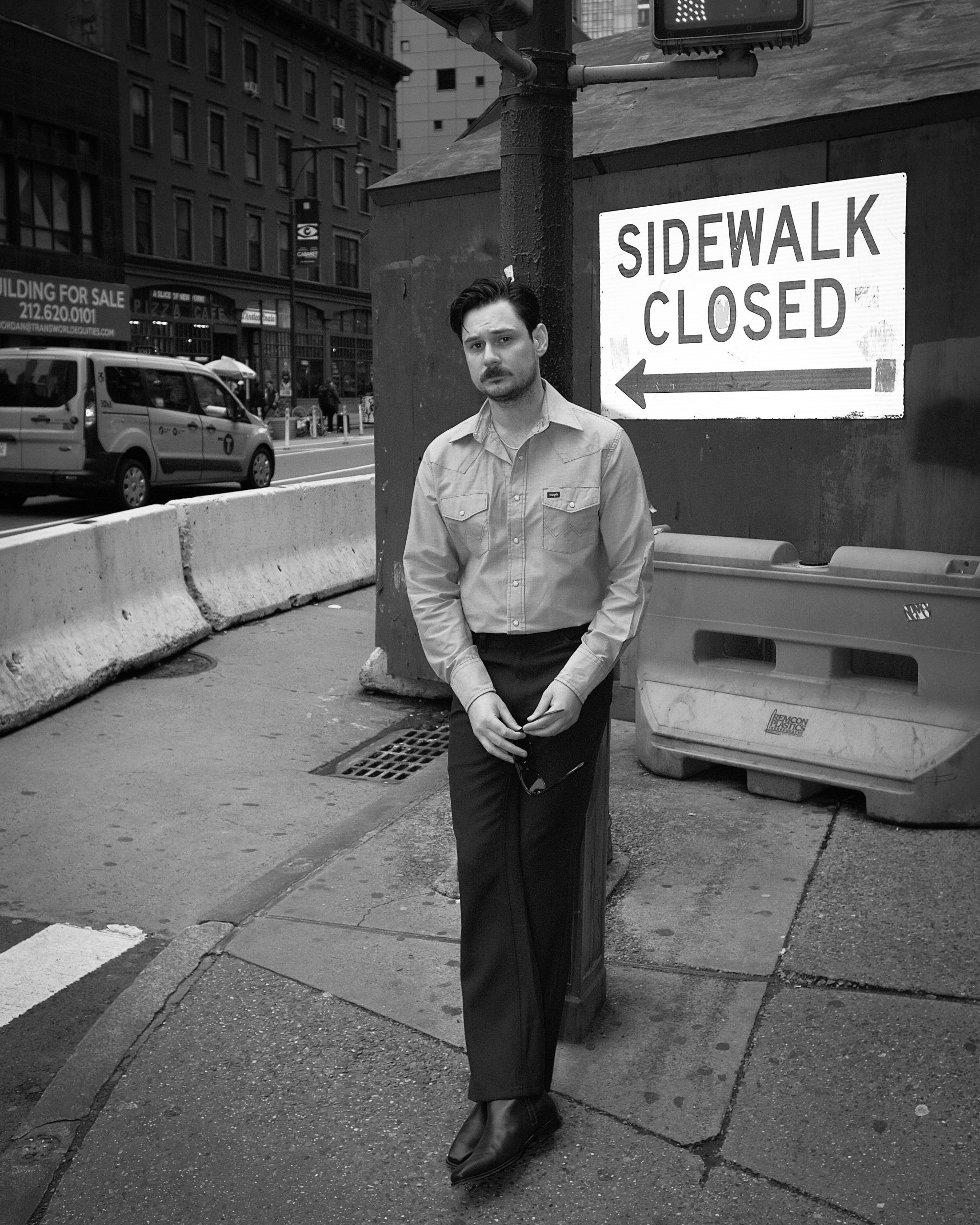
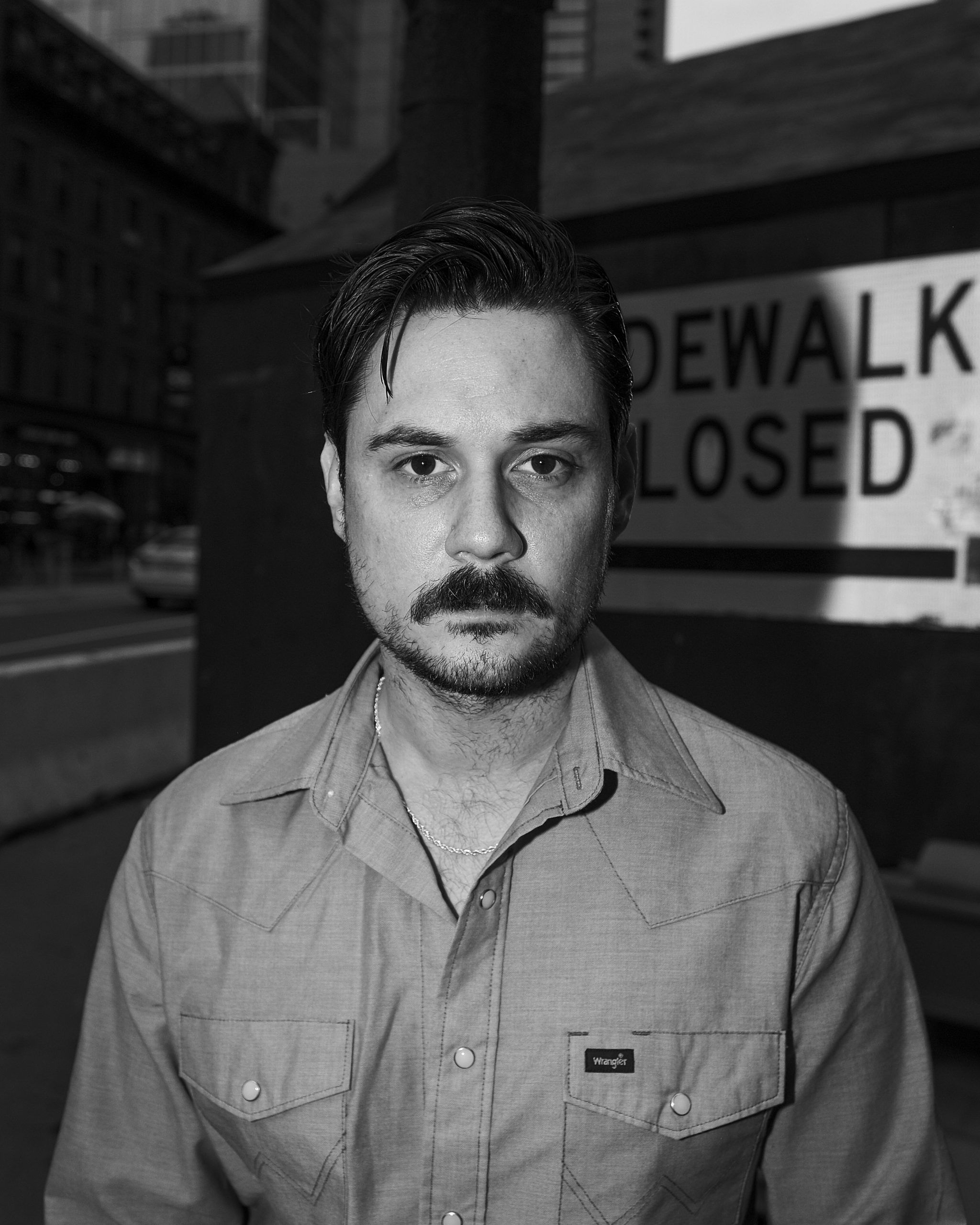

Stereophonic is playing now on Broadway at the John Golden Theatre.
Interview Juliana Ogarrio
Photography Evan Brown

